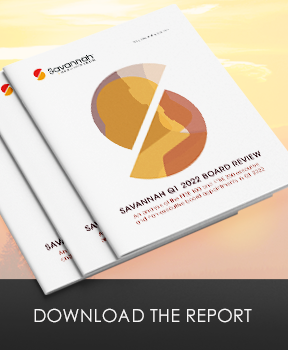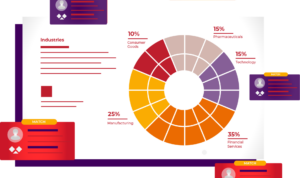An analysis of the FTSE 100 and FTSE 250 executive and non-executive board appointments in Q1 2022
INTRODUCTION
 The start of a new year typically brings feelings of hope, and as the clock ticked into 1 January, business execs will have been forgiven for leaning towards optimism in their outlook for 2022. Following a difficult couple of years, England was getting through a winter spike in Covid cases without returning to lockdown rules which crippled large parts of the economy in 2020 and 2021.
The start of a new year typically brings feelings of hope, and as the clock ticked into 1 January, business execs will have been forgiven for leaning towards optimism in their outlook for 2022. Following a difficult couple of years, England was getting through a winter spike in Covid cases without returning to lockdown rules which crippled large parts of the economy in 2020 and 2021.
UK GDP rebounded by 7.5% last year, the fastest growth in 80 years, and in the first quarter of 2022 the economy finally returned to pre-pandemic levels. Yet barely had the chance to wave goodbye to one crisis passed before another emerged as Russia invaded Ukraine in February, sparking a war which exacerbated the inflationary pressures the economy was already feeling.
A hangover of pandemic-induced supply chain issues, which saw the cost of certain goods and materials rise through 2021, has endured into 2022 and collided with the war in Europe to intensify energy price hikes and embed high inflation across much of the economy. Though the economy grew by 0.8% over the full first three months of the year, it shrank by 0.1% in March as the cost-of-living crisis began to really take hold. Analysts warn the risk of a recession has risen.
In an attempt to curb inflation and combat a ‘sharp economic slowdown’ this year, the Bank of England has raised interest rates in consecutive months since December. Inflation is already at a 30-year high and is anticipated to hit double figures by this autumn, five times the Bank’s target of 2%. The Bank now expects the economy to shrink in the final three months of 2022 and it predicts a 0.25% contraction for 2023, down from its previous forecast of 1.25% growth.
A higher inflation, lower demand economy could cause many businesses to struggle and unemployment to increase. Through this report we will be keeping a close eye on how this challenging economic backdrop affects FTSE board appointments as the year progresses on.
The war in Ukraine prompted FTSE Russell to delete four Russia-focused companies from its indexes in the first quarter – Evraz, Polymetal International, Petropavlovsk and Raven Property Group – after a number of brokers refused to handle the securities. The exits made way for Endeavour Mining and Howden Joinery Group in the FTSE 100, while Clipper Logistics, Tullow Oil and Urban Logistics REIT were among those joining the FTSE 250. Other high-profile companies exiting the FTSE 250 in Q1 2022 included Capita, Cineworld Group and Reach.
Q1 2022
SLOW START TO THE YEAR
Regular readers of Savannah’s board reviews will recall the spike in activity in the first quarter of last year, when appointments across the FTSE 350 increased 28% year on year. FTSE 100 appointments were particularly buoyant, rising 39%. Generally this growth didn’t continue through the rest of 2021 which should be kept in mind as we compare against Q1 2022.
Even with that disclaimer in place, however, it’s difficult not to conclude that FTSE board appointments have got off to a fairly slow start in 2022. The first quarter of the year exactly mirrored the last quarter of 2021 in terms of executive director appointments, which is notable given the final quarter of the year is typically a slower period for appointments to FTSE boards. While the three executive director appointments in the FTSE 100 were only one fewer than the same period in the first quarter of 2021, FTSE 250 appointments were down by half to just eight.
Activity among non-executive director appointments was more significant. Though the 90 NED appointments in the FTSE 350 were down 24% against the same quarter last year, they were up by 25% on the last quarter. This growth was led entirely by FTSE 250 NED appointments, which increased by 49% over Q4 2021 to 67, albeit falling 7% year on year. The 23 NED appointments in the FTSE 100, however, marked a decrease of 15% on the last quarter and 51% on Q1 2021.
Despite the somewhat reduced activity in the first quarter, FTSE chair appointments were reasonably plentiful. Though there were only three in the FTSE 100, down on both the last quarter and the same quarter last year, there were ten chair appointments in the FTSE 250, which is more than treble the last quarter, albeit still 17% down on 2021’s first quarter.
It should also be noted that while we publish this report deep into the cost-of-living crisis, the figures published run to the end of March when the impact of inflation on the wider economy was still fairly nascent. There remains much runway in inflationary ascent in the months to come and the total impact on the business world is still yet to be seen.
NOTABLE APPOINTMENTS
The executive director appointments in the FTSE 100 might have been small in number in the first quarter of 2022, but they were reasonably large in profile. Unsurprisingly the one which grabbed the most headlines was former Versace boss Jonathan Akeroyd, who has taken on the very visible CEO role at Burberry Group. Akeroyd is also a former CEO of Alexander McQueen.
Elsewhere in the FTSE 100, Amy Stirling was appointed CFO at asset management giant Hargreaves Lansdown. Stirling joins from the senior leadership team at Virgin Group and has previously served as CFO of TalkTalk Telecom and The Prince’s Trust. Hemantkumar Patel, meanwhile, was promoted from UK Finance Director to CFO at hospitality company Whitbread.
Notable CFO appointments in the FTSE 250 included Bill Floydd at Watches of Switzerland Group, joining from Grosvenor Casinos owner Rank Group, and Tim Lawlor who has moved to housebuilder Countryside Partnerships following six years at FTSE-listed logistics firm Wincanton. Jonny Mason, a former CFO of Currys and Halfords, was appointed the new Group CFO at Convatec Group, the Anglo-American medical products and technologies company.
On the CEO front, Liam Condon took the helm at FTSE 250 chemicals company Johnson Matthey, joining from German pharmaceuticals firm Bayer where he led the crop science division. Downstream energy veteran Stan Mittelman became CEO at Vivo Energy, the Africa-focused retailer and distributor of fuels and lubricants, while former Spectris boss Joe Vorih stepped into the same role at Genuit Group, which manufactures plastic piping systems.
Barclays made perhaps the most notable NED move in the first quarter of 2022, appointing former senior Goldman Sachs executive Robert Berry as chair of its board risk committee. Elsewhere Jasvinder Gakhal, Motor division MD at Direct Line Group, joined Auto Trader Group’s board, and Deborah Kerr, MD of the PE firm Warburg Pincus, joined the board at Vodafone.
In the FTSE 250, there were two NED appointments at medical products and technologies firm ConvaTec, in the form of Sharon O’Keefe and Kimberly Lody. LXI REIT, a real estate investment trust, also completed a hat trick of board appointments. Joining Cyrus Ardalan as the new chair of the trust were Senior Independent Director Hugh Seaborn and NED Ismat Levin. Meanwhile LXI REIT and Secure Income REIT have agreed to merge in a deal that creates a real estate investment trust with a £3.9bn property portfolio.
Baroness Helena Morrissey stepped into the chair seat at investment firm AJ Bell having previously been chair at rival St James’s Place. Elsewhere in the financial services sector, Edward Braham, former senior partner at global law firm Freshfields Bruckhaus Deringer, became chair of M&G. Alison Platt, who chairs Legal & General Financial Advice and also sits on the boards of Tesco and Spectrum. Life, was elevated to the chair seat at Dechra Pharmaceuticals where she has been a NED since 2020. But perhaps the highest-profile chair appointment was Omid Kordestani, former executive chair of Twitter and the new chair at education publisher Pearson.
GENDER REPRESENTATION
In our Full Year 2021 Board Review we recorded a historic moment as for the first time more women were appointed to FTSE 350 boards than men. However, as we have noted countless times through our quarterly board reviews, real gender parity in the upper echelons of the UK’s largest listed companies is still a long way off due to huge disparities across ED and NED roles.
Just 16% of executive board appointments last year went to women, meaning diversity among British boards is heavily skewed towards NED appointments. In Savannah’s latest diversity report, ‘ED&I: Challenging the Balance of Executive Power’, we delve deeper into these discrepancies in performance and outline practical steps for how organisations can improve.
Until then, it saddens me to report much of the same in the first quarter of 2022. On a positive note, two thirds of NED appointments went to women, which is about the same proportion as the last quarter and greater than the 55% female representation in the first quarter of 2021. Of the 67 NED appointments in the FTSE 250, a mammoth 72% went to women, which trumps the 67% seen in the last quarter, while women also represented 48% of the 23 appointments in the FTSE 100.
However, looking at ED appointments during the same period, the gender representation turns upside down. In the FTSE 100, just one executive appointment was a woman, Amy Stirling, who may cut a lonely figure, but it is at least one more woman appointed to an executive board role than in the last quarter and the first quarter of 2021. Disappointingly, however, no women were among the eight ED appointments in the FTSE 250, which is all the more disheartening given women made up 25% of FTSE 250 ED appointments in the last quarter and in Q1 2021.
Chair appointments were more gender diverse, albeit again all being non-executive roles. Among the three chair appointments in the FTSE 100 in the first quarter of 2022 was one woman, Alison Platt, while women also made up 30% of chair appointments in the FTSE 250. Overall, female representation among chair appointments across the FTSE 350 was 31%, slightly higher than the last quarter but lower than Q1 in 2021.
As we continue to track these figures through 2022, we will be watching gender representation particularly carefully. Until these figures improve, we are a long way from claiming FTSE boards are comprehensively diverse.
An updated report from the Parker Review in March has also put the spotlight on ethnic diversity in UK boards. The report noted that while its target for every FTSE 100 board to have at least one director from a minority ethnic group by 2021 had not been met, 89 companies on the index did achieve it followed by a further five in early 2022. 55% of FTSE 250 companies have also achieved it, meanwhile, giving Sir John Parker “real hope of meeting the full FTSE 350 target” by 2024.
As with all of our reports, our primary source is BoardEx and we edit the raw data to exclude, for example, internal promotions such as NED to SID and non-independent shareholder representative or employee appointments. We prepare these reports as a contribution to the corporate governance debate which we are always happy to engage on. I hope you find this report interesting and relevant.




